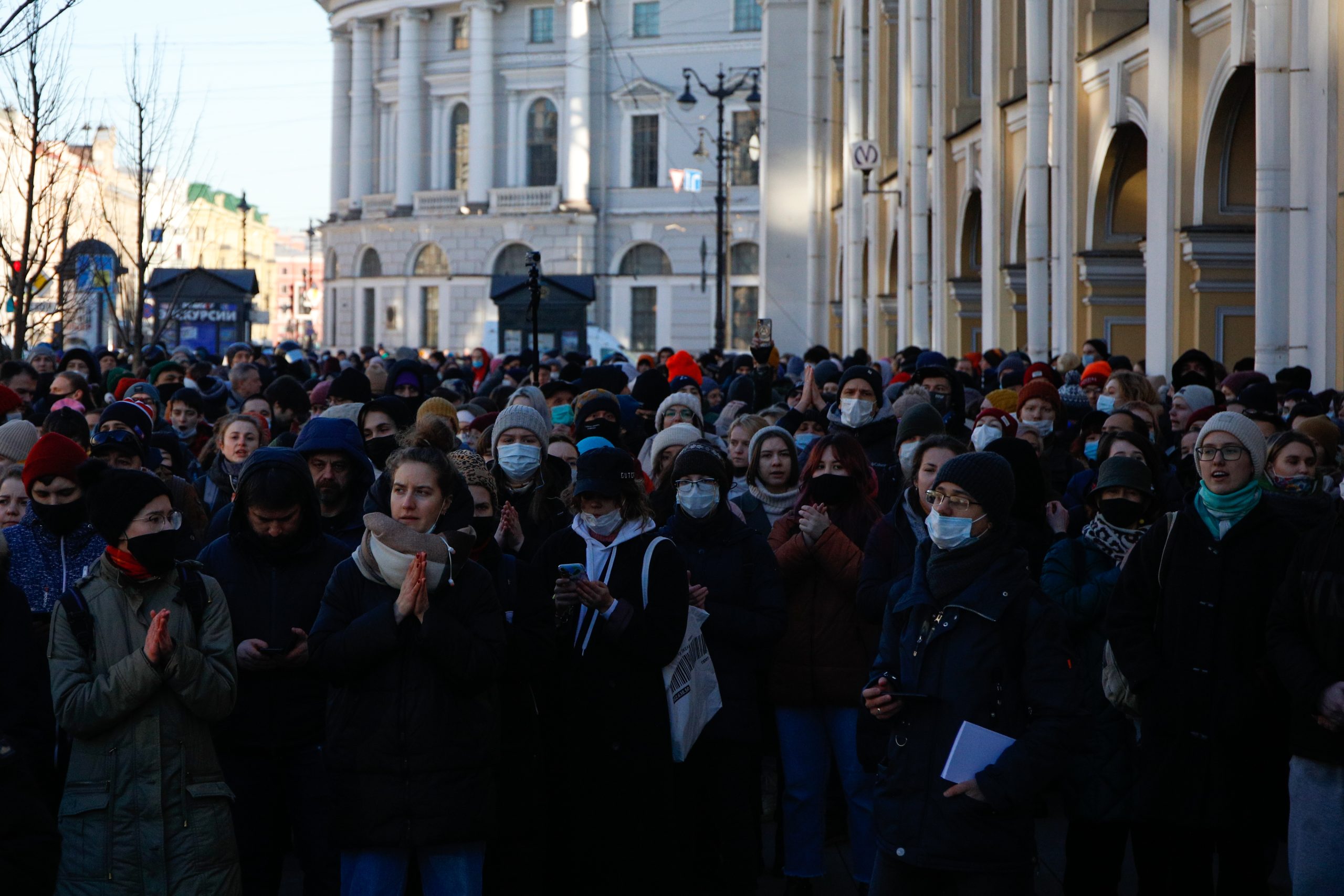Russia’s Embassy in Wellington includes some 20 officials and their partners.
The Ministry of Foreign Affairs and Trade’s website tells us the Russian Embassy’s staff include Ambassador Zuev, a Deputy Head of Mission, a Second Secretary, another Second Secretary, a Third Secretary, four Attach谷s, and eleven ※Administrative and Technical Staff.§
It isn’t a small number.

The European Union’s delegation in New Zealand tallies only six representatives - despite our being in free trade talks with the EU. The Russian Embassy has more staff and officials than the European Union’s delegation and the British High Commission combined.
Last week, some 200 Russian diplomats were expelled from European countries.
But 20 apologists for a regime of murderous war criminals are suffered to remain in Wellington,?with their partners.
It’s hard to fathom why, but it does present an opportunity.
Were New Zealand’s Government to expel Russian officials, the usual game of tit-for-tat would see officials expelled from our embassy in Russia.
Maintaining an embassy in Moscow allows New Zealand to continue providing consular services for Kiwis who have not yet fled Russia.
It could serve a more useful role by providing Russian asylum-seekers with the papers necessary to move to New Zealand.
Western countries welcomed Soviet defectors and asylum-seekers during the Cold War.
The Soviet Union heavily restricted emigration: first to prevent emigrants from telling others what life under Communism was really like, then to prevent a brain drain. Nevertheless, some half a million Soviet emigrees made it to the West between 1948 and 1982, including no small number of superb scientists, writers, and artists.
During the Cold War, the Soviet Bloc used walls, minefields, and threats to families left behind to keep their subjects from escaping.
Political repression in Putin’s Russia is looking increasingly Soviet. The Washington Post?reported that Russian schoolchildren are encouraged to inform on their teachers. Speaking out against the invasion of Ukraine can fall afoul of legislation banning &false information about the military’. The Post also noted that activists, journalists, and opposition politicians are under increased pressure.
Last week, the American Enterprise Institute’s Brent Orrell and the Cato Institute’s Alex Norasteh urged the Biden administration to fight the Putin regime by depriving it of skilled labour.
Tariffs and trade sanctions are important, but costly. They hurt both sides. But welcoming skilled workers and depriving Russia and Belarus of highly skilled labour, as Orrell and Nowrasteh put it, ※would strike a blow against our adversaries and simultaneously strengthen the present - and future - American economy.§
They noted that some 50,000 to 70,000 information technology specialists had fled Russia since the war started, and another 100,000 were expected to leave by the end of April.
The Soviet Bloc knew the risks a brain drain posed to their regime and built a concrete wall to stop it. Today’s wall is built of paper: immigration restrictions in New Zealand and elsewhere prevent entry.
About four million refugees have had to flee Ukraine so far. Warsaw has accommodated a 17 percent?increase in its population in a few short weeks. Allowing Ukrainians with family in New Zealand to come here seems the least we can do, and rather thin by comparison.
But there seems no provision at all for Russian opponents of Putin’s regime to seek asylum here, whether they have family in New Zealand or not. Travel from non-visa-waiver countries is close to impossible. New Zealand’s slow and staggered border opening has nothing to do with Covid risk in different countries and everything to do with Immigration New Zealand’s inability to process visas.
Immigration New Zealand’s generalised incapability is bad enough. But it may only be a symptom of a deeper problem.
An immigration policy reset yet looms. And that reset seems likely to take an insular turn.
Primary and intermediate schools are being restricted against enrolling international students for no good reason. When international tertiary students are finally allowed to return, they are likely to face tighter restrictions on working while here - regardless of labour shortages.
The Labour Government and Wellington bureaucracy too often and incorrectly view migrants as a cost to be mitigated rather than a benefit to be sought.
In February, Canada’s Immigration Minister announced plans to welcome more than 1.3 million new permanent residents amid what he described as a ※global race for talent.§ Welcoming migrants is there seen as part of the economic recovery from Covid.
In the United States, Congress is weighing legislation that would exempt those with doctorates in science, technology, engineering and math from numerical limits on Green Cards. Forbes Magazine warned the measure was necessary lest talented people choose to live elsewhere.
A stalled immigration system with an increasing international reputation for hostility to migrants will turn New Zealand into a backwater.
It is a substantial problem for immigration policy and for the immigration reset.
But the Government’s mix of hostility toward migrants and lack of capability in visa processing also means we are not taking advantage of the opportunity provided by a continued diplomatic presence in Russia.
New Zealand could assist in draining Russia of the skilled workers whose exit the former Soviet Bloc used walls to stop. It would help ease skilled worker shortages here while contributing to shortages there and building the dissident diaspora that can help in bringing down authoritarian regimes.
The best justification for allowing 20 apologists for a murderous regime to maintain an embassy in Wellington is that it could allow New Zealand’s embassy in Russia to help Russian dissidents to come to New Zealand.
If we will not do that, it is hard to see the point of allowing the continued presence of 20 of Putin’s officials.


